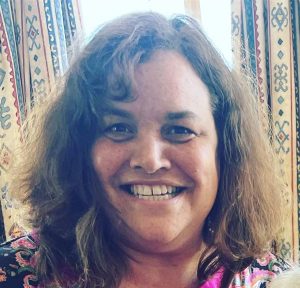An Uneven Treacherous Playing Field: Inequality on a Global Scale.
by Nadia Ramoutar MMM Communications Coordinator Ireland 01.08.2023
 In Ireland a friend of mine who is usually healthy, recently had a heart issue that could have caused him a heart attack or a stroke. He was quickly referred to a cardiac specialist and spent a week having tests and getting all the resources he needed to go on with his life. Many people living in remote or desolate areas are without such resources, so the death rate in those areas are much higher than they are in the western world. We look at the numbers on this, we can see that they don’t lie.
In Ireland a friend of mine who is usually healthy, recently had a heart issue that could have caused him a heart attack or a stroke. He was quickly referred to a cardiac specialist and spent a week having tests and getting all the resources he needed to go on with his life. Many people living in remote or desolate areas are without such resources, so the death rate in those areas are much higher than they are in the western world. We look at the numbers on this, we can see that they don’t lie.
In Africa the average age of a person dying is 64 years.
In Europe the average age of a person dying is 80 years.
In the United States the average age of a person dying is 79 years.
The country in the world with the highest average life expectancy is Monaco with the average age of death of a male at 85.17 years and a female is expected to live to be 88.99 years.
This is attributed to multiple factors including the healthy Mediterranean diet of seafood, fresh fruits and vegetables. It is also because the country has a state of the art health care system that is state funded. A third reason is that a large percentage of the population have enough disposable income to afford a healthy lifestyle. Of course there is ample access to clean and fresh water bottled or otherwise.
We can see how those factors in reverse are creating a much shorter life expectancy in Africa. Food insecurity, poverty and low income living, a lack of access to medical resources and lack of security in many ways emotionally, physically and mentally.
The increase in violence is now an added factor in reducing life expectancy, not to mention famine and drought.
The average life expectancy of a man in Nigeria now is 61 years for a man and 63 for a female, making it one of the lowest in the world. Despite all the progress in medical research making life expectancy so much longer around the world, in Africa the life expectancy rate grows at 0.46 %. So we see that the technology, quality of life and advancements in medical care are only valid for some people in the world.
While visiting Tanzania recently and witnessing the challenges that young mothers and babies face living remotely and in poverty, I became painfully aware yet again that the geography of where you are born remains the major factor in your destiny. Born in a Western country, there are so many human rights and resources guaranteed to you from birth while for, other people born elsewhere, there are no promises not only on the length of your life, but also on the quality of those years.
It can only be an injustice that we don’t really ask ourselves how this unfairness is accepted as what, normal? Some people should suffer and barely survive while so many others should prosper. Is this what it means to be a Christian? Is it okay to just ignore the needs of a large part of the world with beautiful people in it just trying to live? I know that no one likes to talk about these questions and it’s hard to bring it up to people at dinner parties or back yard BBQs. We each have to live from our own conscience, but for me I am grateful that I am so aware of the disparity so I can do whatever it is that I can do to even the playing field globally, not just in my own back yard.
SEE ALL BLOG POSTS
